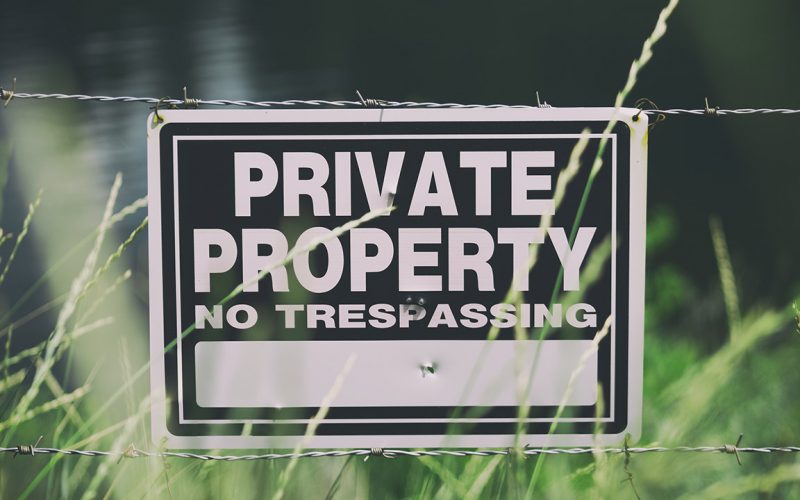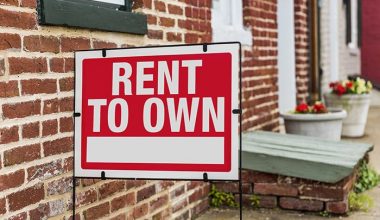In rare cases, a trespasser who comes into your property and occupies it may acquire legal possession of it. This is referred to in law as “adverse possession.” Here’s where you can see the requirements for adverse possession for different states like California and Florida.
What Is Adverse Possession?
Adverse possession is a legal notion that confers title to someone who lives on or is in possession of someone else’s land. The possessor is granted title to the property if certain conditions are met, including whether they infringe on the rights of the true owner and are in continuous possession of the property. Adverse possession is frequently referred to as squatter’s rights, albeit this is a colloquial term for the concept rather than a recorded statute.
How does Adverse Possession Work?
As previously stated, adverse possession is a legal circumstance in which one party obtains title to another person’s property by gaining possession of it. This can happen purposefully or unintentionally, with or without the knowledge of the property owner.
In circumstances of purposeful adverse possession, a trespasser or squatter—someone who illegally occupies another person’s land—knowingly enters another person’s land with the intent of living on it and/or taking it over. Adverse possession may even be unintended in some situations. A homeowner, for example, may construct a fence separating their yard without realizing they’ve stepped over and encroached on their neighbor’s property boundary. In any case, the adverse possessor, sometimes known as the assessor, has the right to that property. Furthermore, if the claimant is successful in establishing adverse possession, they are not compelled to compensate the owner for the land.
An assessor who successfully establishes adverse possession is not compelled to pay the landowner.
The requirements for proving adverse possession vary by jurisdiction. In many states, documentation of payment for property taxes and a deed is required for the claimant to be successful. Each state has a time limit within which the landowner of record can invalidate the claim. For example, if the state threshold is 20 years and the landlord paints or pays for other maintenance on the dwelling in question in the 19th year, the claimant will struggle to prove adverse possession. Having stated that, landowners are recommended to eliminate the danger of adverse possession as soon as possible by signing agreements for any usage of an owned property.
Adverse Possession in the United Kingdom
Adverse possession is becoming more difficult to commence in England with the adoption of the Land Registration Act 2002. According to the legislation, if the land remains unregistered for ten years, the adverse possessor may apply to become the new registered owner. The registrar then notifies the person who is the registered titleholder at the moment.
The title can be transferred if the registered titleholder does not attempt to reject the adverse possessor for two years. The law stipulated that people would not lose their titles unless they were made aware of the circumstance.
Adverse Possession Requirements In the United States
At the very least, five conditions must be completed in order to obtain adverse possession. However, some states have imposed extra adverse possession requirements.
- Actual Possession: The adverse possessor must physically use the land rather than simply walking on it, such as mowing or harvesting.
- Hostile Possession: The adverse possessor must have used the land without the original owner’s permission.
- Open and Notorious Use: The adverse possessor must use the property in a visible manner. It is done so that the original owner can perhaps conclude that someone may file a claim.
- Continuous Use: Throughout the period, the adverse possessor must hold the property continually.
- Exclusive Use: The adverse holder must be the only user. Adverse possession cannot be claimed if the original owner uses the land during that time.
How Adverse Possession Claims Are Resolved in Court
Questions about legal property ownership might arise in a variety of scenarios, such as the selling of a house. A title insurance firm, for example, may refuse to give protection when a property is sold because the neighbor’s garage is discovered to be standing directly on the property.
If problems concerning land ownership develop in this type of situation and the parties concerned are unable to reach an agreement, the matter may wind up in court. The property owner can sue the trespasser (for example, a neighbor whose garage is encroaching), or the trespasser can file a lawsuit to “quiet title,” which is a request to the court to determine who owns what.
Particular Considerations
Adverse possession has been presented as a potential remedy to curb intellectual property rights abuses such as cybersquatting, overuse of copyright, and patent trolling. Adverse possession applied to both intellectual and physical property would drive abusers to spend more effort into actively utilizing their portfolio of trademarks, patents, and so on, rather than just sitting on them and waiting for the true innovators to walk into their domain.
Legal Requirements for a Land Adverse Possession Claim
State statute governs the requirements for adverse possession, which can vary widely between jurisdictions. When deciding on adverse possession claims, courts use a four-factor test. To be considered adverse possession, the trespasser’s occupation of the land must be as follows:
- Hostile
- Actual
- Open and infamous
- For a set period of time, exclusive and continual (typically measured in years).
Each of these characteristics is discussed in this article. Details on the restrictions that apply to your (or the other person’s) property can be found in your state’s adverse possession statute. In addition to the legal possession adverse requirements discussed below, several states require the trespasser to have paid the local property taxes on the land during a certain time period.
#1. A hostile claim requirements for adverse possession.
The term “hostile” does not imply that the intruder rides in on a horse, six-shooters blazing. When it comes to adverse possession, courts instead use one of three legal definitions of “hostile.”
- Simple Occupation. This criterion (which is still followed by the majority of states today) defines “hostile” as the mere occupancy of land. The trespasser is not required to be aware that the land belongs to someone else.
- Being aware of trespassing. This regulation requires the trespasser to be aware that his or her usage of the property constitutes trespassing (meaning the trespasser has no legal right to be on the property).
- Good faith blunder. This law is followed by a few states, and it requires the trespasser to have committed an innocent good faith mistake in occupying the property in the first place, such as relying on an invalid or erroneous deed.
#2. Actual and physical possession Requirements for Adverse Possession.
The second part of the court-applied standard requires the trespasser to genuinely possess the property (be physically present there) and treat it as an owner would. Documenting the trespasser’s attempts to maintain and improve the land, such as planting and watering a garden or erecting a shed, might help establish this.
#3. Open and Notorious Possession Requirements for Adverse Possession.
“Open and infamous” means that anyone—including a property owner who makes a reasonable attempt to investigate—must be able to see that a trespasser is on the property. A neighbor who builds a fence on the next-door property or pours a concrete driveway two feet over the boundary line is two examples.
#4. Adverse Possession Exclusive and continuous possession Requirements.
The trespasser must hold the land solely (that is, the trespasser cannot share possession with strangers or the owner) and without interruption for a set period of time. (This means that the trespasser cannot depart the property, return to it later, and claim that the time spent abandoning the property is part of the “continuous” possession time period.) The amount of time necessary varies by state. It usually ranges between seven and twenty years.
Different Adverse Possession Laws by States
The length of time that a trespasser must occupy the land varies by state. See the table below to determine the period for your state. In some states, the trespasser is required to pay property taxes during this time. Other states do not require payment of property taxes, but if the trespasser has paid taxes, the period required for occupation is reduced. Furthermore, some jurisdictions’ adverse possession statutes make no mention of tax payments at all.
| State | Adverse Possession Statute | Time Required (in Years) for Continuous Possession | In Order to Make an Adverse Possession Claim, You must have… |
| Alabama | Ala. Code Ann. § 6-5-200 | 10 (deed or taxes) | A document or deed, or paid taxes on the property during this time period. |
| Alaska | Alaska Stat. Ann. § § 09.10.030, 09.45.052 | 10, 7 (deed) | A document or deed in the shorter time period is noted. |
| Arizona | Ariz. Rev. Stat. § § 12-522 and following | 10, 5 (deed, taxes if city lot), 3 (deed, taxes) | A document or deed and paid taxes on the property during the shorter time period above. |
| Arkansas | Ark. Code Ann. § § 18-61-103, 18-11-106 | 7 (deed, taxes) | A document or deed and paid taxes on the property during the shorter time period above. |
| California | Cal. Civ. Proc. Code § 325 | 5 (taxes) | Paid taxes on the property in this state during this time period. |
| Colorado | Colo. Rev. Stat. § § 38-41-101, 38-41-108 | 18, 7 (deed, taxes) | A document or deed and paid taxes on the property during the shorter time period above. |
| Connecticut | Conn. Gen. Stat. Ann. § 52-575 | 15 | |
| Delaware | Del. Code Ann. tit. 10 § 7901 | 20 | |
| District of Columbia | D.C. Code Ann. § § 16-1113, 12-301 | 15 | |
| Florida | Fla. Stat. Ann. § 95.12 and the following | 7 (deed or taxes) | A document or deed, or paid taxes on the property during this time period. |
| Georgia | Ga. Code Ann. § § 44-4-7, 44-5-14, 44-5-161 and following | 20, 7 (deed) | A document or deed in a shorter time period is noted. |
| Hawaii | Haw. Rev. Stat. § 657-31 to 31.5 | 20 | |
| Idaho | Idaho Code Ann. § § 5-206 and following | 20 (taxes) | Paid taxes on the property in this state during this time period. |
| Illinois | 735 Ill. Comp. Stat. Ann. § § 5/13-105, 107, 109 | 20, 7 (deed or taxes) | A document or deed, or paid taxes on the property during this time period. |
| Indiana | Ind. Code Ann. § § 32-23-1-1, 34-11-2-11 | 10 (taxes) | Paid taxes on the property in this state during this time period. |
| Iowa | Iowa Code Ann. § 614.17A | 10 | |
| Kansas | Kan. Stat. Ann. § 60-503 | 15 | |
| Kentucky | Ky. Rev. Stat. § § 413.010, 413.060 | 15, 7 (deed) | A document or deed in a shorter time period is noted. |
| Louisiana | La. Civ. Code art. 3475, 3486 | 30, 10 (deed) | A document or deed in a shorter time period is noted. |
| Maine | Me. Rev. Stat. tit. 14, § 801 | 20 | |
| Maryland | Md. Ann. Code [Cts. & Jud. Proc.] § 5-103 | 20 | |
| Massachusetts | Mass. Gen. Laws Ann. ch. 260, § 21 | 20 | |
| Michigan | Mich. Comp. Laws Ann. § 600.5801 | 15 | |
| Minnesota | Minn. Stat. Ann. § 541.02 | 15 (taxes) | Paid taxes on the property in this state during this time period. |
| Mississippi | Miss. Code Ann. § § 15-1-7, 15-1-13 | 10 | |
| Missouri | Mo. Stat. Ann. § 516.010 | 10 | |
| Montana | Mont. Code Ann. § 70-19-411 | 5 (taxes) | Paid taxes on the property in this state during this time period. |
| Nebraska | Neb. Rev. Stat. § 25-202 | 10 | |
| Nevada | Nev. Rev. Stat. § § 11.070, 11.110, 11.150, 40.090 | 15 (taxes), 5 (deed, taxes) | A document or deed and paid taxes on the property during the shorter time period above. |
| New Hampshire | N.H. Rev. Stat. Ann. § 508:2 | 20 | |
| New Jersey | N.J. Stat. Ann. § 2A:14-30 | 30 | |
| New Mexico | N.M. Stat. Ann. § 37-1-22 | 10 (deed) | A document or deed in a shorter time period is noted. |
| New York | New York Real Prop. Acts. Law § 501, 511 | 10 | |
| North Carolina | N.C. Gen. Stat. § § 1-38, 1-40 | 20, 7 (deed) | A document or deed in a shorter time period is noted. |
| North Dakota | N.D. Cent. Code Ann. § § 28-01-04 and following, 47-06-03 | 20, 10 (deed, taxes) | A document or deed and paid taxes on the property during the shorter time period above. |
| Ohio | Ohio Rev. Code Ann. § 2305.04 | 21 | |
| Oklahoma | Okla. Stat. Ann. tit. 12, § 93 | 15 | |
| Oregon | Or. Rev. Stat. § § 12.050, 105.620 | 10 | |
| Pennsylvania | 42 Pa. Cons. Stat. § 5530 | 21, except 10 for single-family homes on parcels less than 05. acres. | |
| Rhode Island | R.I. Gen. Laws Ann. § 34-7-1 | 10 | |
| South Carolina | S.C. Code Ann. § 15-67-210 | 10 | |
| South Dakota | S.D. Codified Laws Ann. § § 15-3-1, 15-3-15 | 20, 10 (taxes, deed) | You must have a document or deed in the shorter time period noted. |
| Tennessee | Tenn. Code Ann. § § 28-2-101 to 28-2-103 | 7 (deed) | A document or deed in a shorter time period is noted. |
| Texas | Tex. Civ. Prac. & Rem. Code Ann. § 16.021 and the following | 10, 5 (deed, taxes) | A document or deed and paid taxes on the property during the shorter time period above. |
| Utah | Utah Code Ann. § § 78B-2-208 to 78B-2-214 | 7 (taxes) | Paid taxes on the property in this state during this time period. |
| Vermont | Vt. Stat. Ann. tit. 12, § 501 | 15 | |
| Virginia | Va. Code Ann. § 8.01-236 | 15 | |
| Washington | Wash. Rev. Code Ann. § § 4.16.020, 7.28.050 | 10, 7 (deed or taxes) | A document or deed, or paid taxes on the property during this time period. |
| West Virginia | W. Va. Code § 55-2-1 | 10 | |
| Wisconsin | Wis. Stat. Ann. § § 893.25 to 893.27 | 20, 10 (deed), 7 (deed, taxes) | A document or deed and paid taxes on the property during the shorter time period above. |
| Wyoming | Wyo. Stat. Ann. § 1-3-103 | 10 |
Florida Adverse Possession Law
Adverse possession is a strange idea that allows a person to acquire title to a property by putting it to good use for a statutorily determined amount of time. According to Florida adverse possession law 95.18, when a person publicly moves into another’s neglected property and repairs it, they can earn title to it after a period of time has passed.
What it means to hold Title to a Property
A title in real estate is a legal document that identifies you as the legitimate owner of the property. As the owner of a property, you have the right to make changes to it and transfer ownership to another party.
Because a person may own a property in part or entirely, real estate law becomes complicated. Limitations on your ownership can also occur if you refuse to pay property taxes or if your claim lacks “color of title.”
Using “Color of Title” to make a claim
According to Florida adverse possession Statute 95.12, a possessor must inhabit the property for at least seven years. That occupancy must be carried out “under a color of title” or by the payment of property taxes. When someone looks to have acquired title to real land, but there is a flaw in the title that renders it ineffective, this is referred to as the ‘color of title’. As a result, ownership is not established.
A person has no cause to believe that they are the legal owner of the property while claiming without color of title. This usually happens when a trespasser who has illegally entered the premises attempts to claim ownership of the property.
If a person claims property via the color of title, they must meet specific requirements in order for the courts to acknowledge their claim to the property.
Florida Adverse Possession Law Requirements
Each Adverse Possession claim must meet five basic requirements:
- Hostility: The possessor must be either conscious that he is infringing on another’s land or have made a reasonable error, such as relying on a defective deed.
- Actual possession: This entails the owner being physically present on the land and treating it as their own.
- Open and notorious possession: To meet these criteria, the property’s possession cannot be covert.
- Exclusive and continuous possession: In this case, the possessor may not share their possession with others and must be in possession of the property for the statutorily authorized period of time.
- Improvement: The possessor must be improving, farming, or protecting the claimed property from a large enclosure on the land.
According to the law of adverse possession, when a person publicly moves into another’s neglected property and improves it, they can earn title to it once a certain period of time has passed.
Adverse Possession In California
The table below summarizes the fundamentals of California’s adverse possession legislation.
| Code Section | Civ. Proc. §§318, 325, 328 |
| Time Period Required for Occupation | 5 yrs. and Payment of Taxes |
| Time for Landowner to Challenge/Effect of Landowner’s Disability | With disability: 20 yrs.; After disability lifted: 5 yrs. |
| Improvements | – |
| Payment of Taxes | 5 years required |
| Title from Tax Assessor | – |
How to Determine Property Boundaries
If you’re not sure, keep in mind that any piece of property that becomes the subject of a sale, lease, or the security of an obligation must be correctly defined or described, and must be based on the field notes of a surveyor or civil engineer. Here are some resources for identifying and describing property lines:
- A deed is a written instrument duly executed and given by the grantor that transfers some right, title, or interest in real estate to the grantee.
- Examine the procedure for measuring and determining the area of a plot of land.
- The county recorder shall keep a record of records for the property, which is open to the public.
Three Cases of Adverse Possession in California
Adverse possession happens in California when a person seeking to claim someone else’s land must not only utilize it for at least five years but also pay property taxes on it.
Dimmick v. Dimmick 58 Cal. @d 417,421, 424 Cal.Rptr. 856 374 p. 2d (1962)
The land was deeded to three sons, but only one of them farmed it. That son filed a quiet title suit. The trial court ruled they had joined tenancy, and the court of appeals upheld the trial court’s decision.
228 Cal. App. 2d 474, 489 James v. LeDelt (1964)
This was a disagreement over a 400-foot-wide area, with the plaintiff requesting that a cabin be removed from the area in question. Based on agreed boundaries, adverse possession, estoppel, and laches, the trial court found in favor of the defendant. The judge determined that the plaintiff lacked any right, interest, or title to the contested property.
128 Cal. App. 2d 72, 75, Madden v. Alpha Hardware & Supply Co. (1954)
A property dispute involving adverse possession, in which the plaintiff claims to have had possession for twenty years and paid taxes for ten. The defendants filed an appeal, and the appeal Judge upheld the order.
Defend Yourself Against Squatters
A squatter is someone who lawfully occupies a property but does not own, rent, or has permission from the owner to do so. In California, squatters have rights and can steal your property through adverse possession. It does happen, so be aware of your rights and safeguard your possessions. Here are a few ideas:
- File your taxes on time.
- Maintain a steady flow of tenants in your rental property.
- Make it explicit in the lease that subletting is not permitted.
- Hire a property manager to keep an eye on your properties when you are unable to.
- Ensure that your house has a good security system.
Adverse Possession Restrictions
Adverse possession is not available in every circumstance. For example, may not be used to obtain title to government-owned land.
Homesteading vs. Adverse Possession
In practice, adverse possession is akin to homesteading. In homesteading, new owners are handed government-owned land or property that has no apparent owner on record as long as they use and improve it. A homesteader may lose their land if they do not use it. Adverse possession can function similarly by releasing land with an ambiguous title for productive use.
Adverse possession, on the other hand, can be abused in ways that homesteading cannot. If there is an informal easement between two farms, for example, when one farmer’s fence contains an acre of the neighbor’s land, the farmer using it can claim adverse possession and literally bite off that chunk of ground if there is no written easement arrangement.
How is Adverse Possession Established?
The possessor must demonstrate real or planned possession. This entails a desire to exclude all people from the land, but only by possession rather than ownership.
#1. Evidence
The ‘nature and value of the property, suitable and natural method of use,’ and the owner’s actions in preserving his own interests are all taken into account. The erection of a fence, for example, is commonly regarded as the “strongest possible proof” of adverse possession. Evidence that the possessor could have done more with the land is not taken into account. A mistaken belief in ownership or a readiness to pay if asked is similarly inadmissible as evidence of possession.
#2. Rates and taxes must be paid
The payment of rates and taxes is crucial as a factor of proof, but it is not conclusive. A reluctance to pay rates, on the other hand, goes against the aim to acquire.
Is it possible for the owner to reclaim possession?
It is vital to highlight that the time period of repossession is immaterial for restoring possession. For example, 45 minutes of repossession can wipe out 19 years of adverse possession.
The documentary owner has two options for regaining possession:
#1. Through physical entry
Land rights must be reasserted before the limitation period expires. This includes both major activities like removing the possessor and little acts like removing fences or other structures. The owner must retake possession ‘with the intent of repossessing,’ but shall not do so through violence or force. Protests, whether oral or written and legal transactions such as a mortgage or lease do not qualify as repossession.
#2. By means of legal proceedings
When court procedures are initiated, the time of adverse possession ends, hence it is often advised to ‘litigate first, negotiate later.’ The process begins with the issuance and serving of a summons for possession with the goal of securing a possession order. The rights of the adverse possessor are ended if proceedings begin within the limitation period. If this summons is dismissed, time will begin anew on this date.
How to Avoid Adverse Possession
#1. Keep an eye on your property if you own it.
Check property tax records to see if this person (or anybody else) has made tax payments on the property if you feel they have an adverse possession claim. You can take the following procedures to prevent a trespasser from acquiring property ownership:
#2. Post “no trespassing” signs and use gates to block entry.
Keep in mind that while this is a smart approach to prevent trespassers, in many states having signs or gates will not protect you from a claim by a trespasser who takes possession of the land regardless.
#3. Give someone formal permission to use your land and obtain written acknowledgment from them.
You could, for example, grant someone permission to park on your property, take a shortcut across your property, or garden or grow crops. This can defeat not just an adverse possession claim, but also an easement (use permission) claim across your land.
#4. Call the cops.
Get a lawyer. To evict the trespasser from the landlord’s property, you may need to file a lawsuit. Alternatively, you may seek a court to order the removal of construction from your property. You must act before the trespasser has been on your property long enough to make a successful adverse possession claim under your state’s law.
Read Also: NFL Pension: The Ultimate Guide in 2023 (Updated)
Obtaining Assistance With Trespassers
If you feel someone is trespassing on your property, you can speak with a lawyer in your area.
Some states require the trespasser to have paid property taxes for the specified time period. Some states require the trespasser to have a document indicating ownership of the property (such as a deed or title), even if the document is legally defective. For further information about adverse possession, consult your state’s law.
What is the time limit for adverse possession?
Adverse possession can take place after a period of time that varies by state, typically ranging from 5 to 30 years.
What is required for adverse possession to be valid?
Adverse possession requires that the person claiming it has actual and continuous possession of the property, openly and notoriously, and with the intent to claim ownership.
How does adverse possession affect property ownership rights?
Adverse possession can result in the transfer of ownership rights from the original owner to the person who is claiming adverse possession, after the necessary time and criteria have been met.
Is adverse possession the same thing as theft?
No, adverse possession is not theft. While both involve taking control of someone else’s property, adverse possession involves doing so openly and with the intention to claim ownership after a certain amount of time, while theft involves taking control of someone else’s property without their permission.
Can a property owner prevent adverse possession?
Yes, a property owner can prevent adverse possession by taking action to evict the person claiming adverse possession, or by taking steps to maintain control of the property, such as regularly visiting the property and keeping it secured.
What happens if two people claim adverse possession of the same property?
If two people claim adverse possession of the same property, it is up to a court to determine who has the stronger claim based on the circumstances of each case. Factors such as the length of time each person has possessed the property, the amount of improvements made to the property, and the intent to claim ownership will be considered.
Adverse Possession FAQ’s
Can you claim land after 7 years?
Someone in adverse possession can rely on the adverse possession of their predecessors, therefore someone who buys land from someone who has been in adverse possession for 7 years only needs to remain in possession for 5 more years to claim the title.
Can adverse possession be challenged?
After ten years of “adverse possession” of registered land, a party may apply to the Land Registry to be registered as the new owner in place of the current one.
How long is adverse possession application?
The majority of these applications are finished in 9 months or less, but we know that some can take up to 11 months, with exceptional situations requiring even longer.
{
“@context”: “https://schema.org”,
“@type”: “FAQPage”,
“mainEntity”: [
{
“@type”: “Question”,
“name”: “Can you claim land after 7 years?”,
“acceptedAnswer”: {
“@type”: “Answer”,
“text”: “
Someone in adverse possession can rely on the adverse possession of their predecessors, therefore someone who buys land from someone who has been in adverse possession for 7 years only needs to remain in possession for 5 more years to claim the title.
“
}
}
, {
“@type”: “Question”,
“name”: “Can adverse possession be challenged?”,
“acceptedAnswer”: {
“@type”: “Answer”,
“text”: “
After ten years of \”adverse possession\” of registered land, a party may apply to the Land Registry to be registered as the new owner in place of the current one.
“
}
}
, {
“@type”: “Question”,
“name”: “How long is adverse possession application?”,
“acceptedAnswer”: {
“@type”: “Answer”,
“text”: “
The majority of these applications are finished in 9 months or less, but we know that some can take up to 11 months, with exceptional situations requiring even longer.
“
}
}
]
}
- SQUATTERS RIGHTS: Legal Definition and the Law in the Different States
- Deed Of Trust: Overview, Mortgage vs. Deed of Trust & How it Works
- Debtor In Possession Financing: How It Works, DIP chapter 11
- SECURITY LAWYER: All You Should Know (Updated)
- GRANT DEED: Best US Practices & All you should Know






